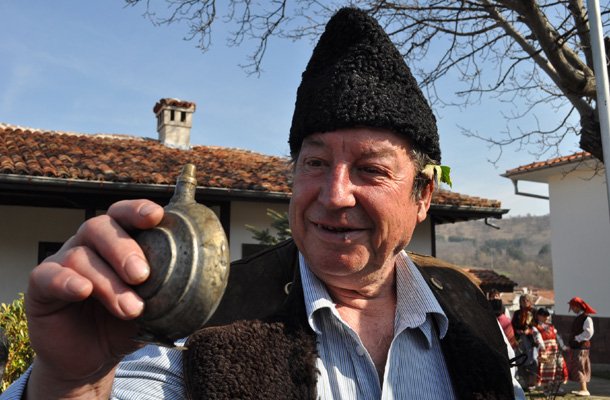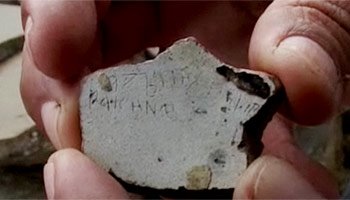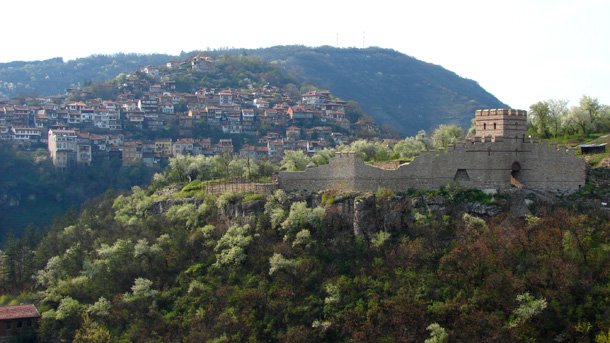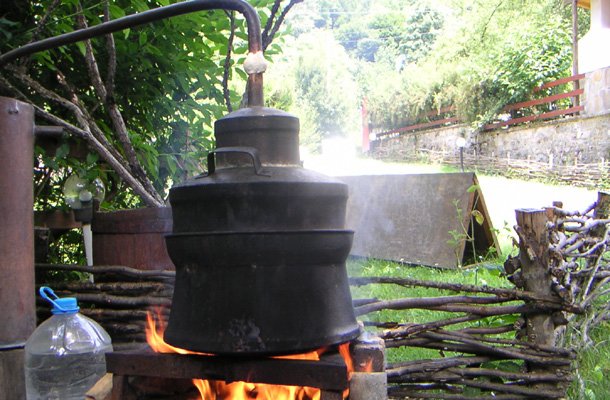
Bulgarians drank the local rakiya (brandy) long before it appeared on the table of other European nations. This claim derives from a recent archeological find in Bulgaria’s medieval capital Veliko Tarnovo, Central Bulgaria. During digs on Trapezitsa Hill dotted with ruins from the Middle Ages, archeologist Konstantin Totev came across a fragment from a 14 c. vessel with an inscription including the word “rakinya”. There is hardly any doubt that whoever wrote it, had in mind the alcoholic beverage very popular in the Balkans, rakiya, consumed traditionally by Bulgarians too. Well, the curious thing is that the inscription is among the earliest evidence found in the world about its use, researchers claim.

© Photo: bnt.bg
„At the feast I drank… rakinya” – this graffiti in Old Bulgarian found on a ceramic pot from 14 c. is about to transform our notions regarding the route of the “fiery water” in time. Probably the Bulgarian aristocrats, the boyars, drank rakiya 200 years before the beverage gained its European popularity. By the way, people knew about the process of distillation in ancient times. It is supposed that the brandy was actually invented by the Arabs, and the word “rakiya” derived from “arak” in Arabic. However, the Arabic drink is characterized with its anise taste, unlike the Bulgarian version made primarily from grapes, plums or other fruit. We should note here that the rakiya in its varieties is found in all Balkan countries with different but very similar names such as „raki”, „raka”, „rachiu” etc. It is claimed that the enchanting drink was imported into Bulgaria during the plague epidemics during the Middle Ages and was initially used to treat the Black Death. Our forefathers however soon appreciated its unique taste and its property to heighten the mood. No wonder then that the rakiya became widely popular growing into an indelible part of the local habits, ways and folklore. Today the beverage is consumed often, and this is not for nothing. Judging from the medieval find on Trapezitsa Hill the Bulgarians were among the first Europeans who came to know and appreciate its sweetness. „We found the vessel with the unconventional message while we were digging a necropolis of a 14 c. church”, said Prof. Konstantin Totev who leads the digs in the northern section of the Trapesitsa stronghold.

© Photo: Veneta Nikolova

© Photo: Veneta Nikolova
On December 9 the Orthodox Church celebrates the Conception of the Most Holly Theotokos by Saint Anne. Joachim and Anne were childless for a long time despite their righteous life. In addition to their personal grief, they also endured public..
The Bulgarian Orthodox Church honors the memory of St. Nicholas the Wonderworker on December 6. He is called the saint of mercy because his entire life was dedicated to supporting the poor, the suffering, the innocent and the wronged. His words had an..
A group of Bulgarian scientists is leaving today for the Republic of South Africa, Botswana and Zimbabwe . On the initiative of the Explorers Club Bulgaria, the researchers will research into the origins of Homo sapiens in these places. The..
At sunset on December 25, the Jewish community begins to celebrate Hanukkah. The holiday begins on the 25th day of the Jewish month of Kislev in the..
The Bulgarian Orthodox Church celebrates Christmas with solemn services. The festive services began on Christmas Eve, when the church held a solemn..
This year, the holiday of Christmas for the Bulgarian Eastern Orthodox Diocese in the United States, Canada and Australia is especially exciting!..

+359 2 9336 661
